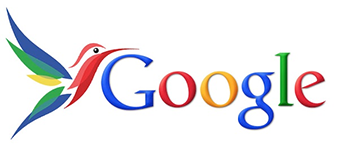The Google Hummingbird Algorithm

For the first time in years, Google has released an overhaul on how its search algorithm answers queries. Google Hummingbird has now replaced 2010´s Caffeine, which saw updates such as Panda and Penguin. The new algorithm will certainly see its own updates as the team over at Google fixes bugs and tweaks how it works, but what does Hummingbird mean for marketers and searchers right now?
Good for Users
Google´s focus with the Hummingbird update is on providing more useful information for the user. Additionally, the Google team has improved the database and how content relates to one another. We can draw this conclusion from the fact that Google wants to answer questions and not just look up information related to queries. A few years ago, Bing coined the term "decision engine," meaning that users could use the search engine to make decisions rather than just having to choose from possibly millions of results. Now, it appears as though Google wants to provide the same service to its users.
Google also condenses information about entities, people, places, things and events by drawing pertinent information from authoritative websites and displaying that information directly on the top right of their results page. No longer do searchers have to browse a dozen websites to find simple answers. Just look up your favorite celebrity or band, and you will see a result that perfectly illustrates this.
You can expect the knowledge graph to become more and more complex over time. Comparison searches, for example, could benefit greatly thanks to the new way that the Hummingbird update operates. Google also uses information like this in it’s other services. Maps, for example, draws information from Google Places and Google+ Local pages, so a searcher doesn´t have to open a new browser or move into another Application to access the data.
Another benefit of the update is that a lot more spam has quickly dropped from the SERPs. This is especially true for queries about things such as medication. Before, you´d be inundated with Websites trying to peddle you drugs from around the world. Now, it is easier to find information about medications and the conditions that they treat.
Keywords No Longer Key
Semantic search or conversational search is what those human-friendly questions are called, and improvements in the new Hummingbird algorithm and database mean that every word is now important in a question and not just the keywords. We have been trained to search with queries that think the way computers think, but now Google´s computers are much better at understanding what humans want from the searches that they use. Mobile users should especially benefit from this change as when people use voice commands in Google Now or Siri for example, they are much more likely to speak in a conversational manner.
I wouldn´t go so far as to say that keyword research is a thing of the past, but it is going to matter less as Google is pushing marketers and Webmasters to take a content-centric approach. This may be especially true of longer-tailed keywords, which were simply strings of keywords tied together in ways that weren´t necessarily semantic.
Content Creators Get Rewarded
Any Website that provides useful information for readers is going to fare better after Hummingbird, so this update shouldn´t result in the major backlash that we saw after Google released Panda and Penguin. Those updates penalized black-hat SEO techniques, and Google wasn´t shy about manually penalizing Websites, either. However, many SEOs have wised up since then, finally coming to realisation that content is king. If this is your mantra, then you´ll be safe.
Look Out for Authorship
If you your content is what Google considers to be high quality, which it should all be? Your articles will be displayed near the top of the SERPs for your related keyword searches, a great way to improve the click through rate on these is to use the Google authorship service. This service offers the great advantage of displaying a profile picture alongside your search result making it far more trusted and likely to receive a click form a searcher.
What about PageRank?
PageRank continues to play a role in your position in the SERPs, but this is slowly becoming less and less important. According to Google´s Matt Cutts, you shouldn´t expect an update to PageRank until early next year. While that´s just couple of weeks away, updates have been rolling out much slower than they once did. Remember though, that PageRank is just one of over 300 factors that go into Googles closely guarded algorithm that you need to consider.
Your Turn to Talk
What do you think about the Google Hummingbird update? Did it affect you in any way? Please share your opinion in the comments section. Your opinion matters, unless it is a Spam.




Very good content and friendly search algorithm which completely helps us to focus on our visitors needs.
Thanks to Google for this awesome update.